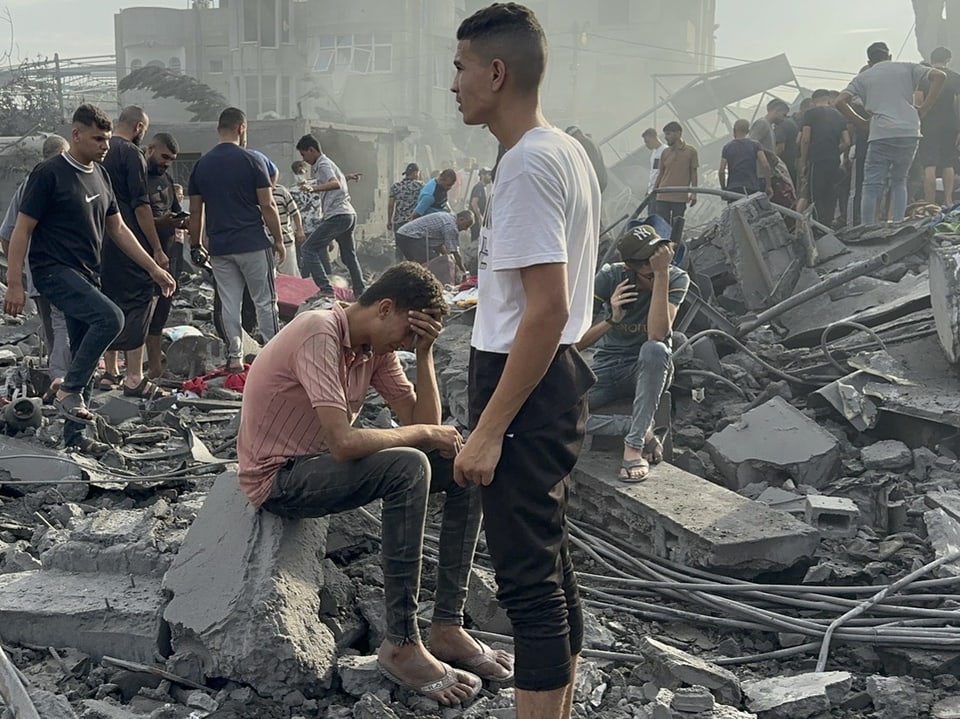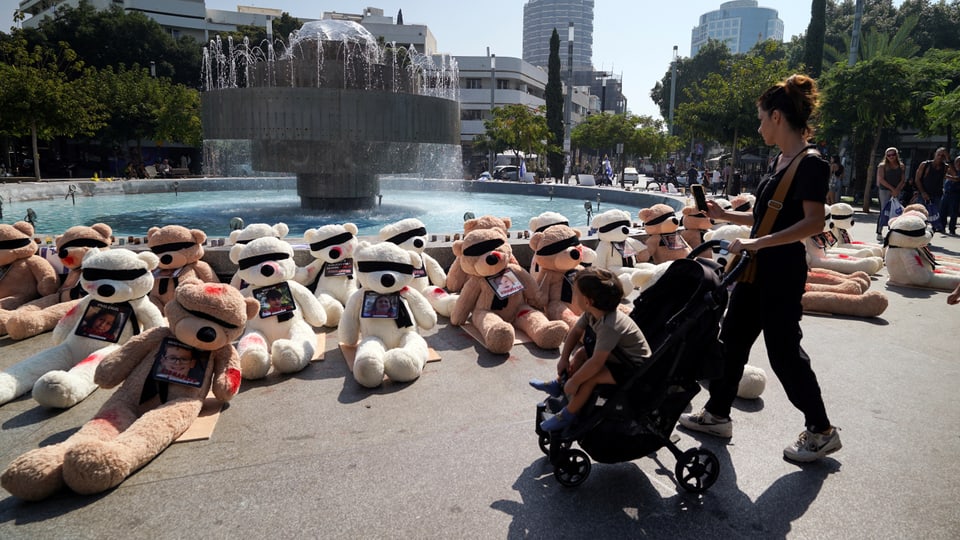Contents
The current events of the Middle East conflict leave their mark on the human psyche. Images and experiences awaken memories of traumatizing events from the past. Given this, is dialogue ever possible?
“Siren alarms sound every day in Israel and certain areas of the West Bank. The civilian population is very scared,” says Rahel Bachem from the Psychological Institute at the University of Zurich.
“The people in the conflict areas are currently constantly exposed to a dangerous situation.” In addition, there are circulating images and horrific reports in the media.
Just looking at these pictures rarely leads to trauma, says Bachem. However, people’s resilience decreases due to the omnipresent presence of images. This increases the risk of being haunted by nightmares at night after a war experience, of being taken away from the here and now by flashbacks or of developing an increased perception of danger or avoidance behavior – classic symptoms of post-traumatic stress disorder (PTSD).
Nobody in the civilian population wants war.
According to Bachem, traumatizing experiences affect the civilian population’s sense of security. This partly creates a need for solutions and peace. “Nobody in the civilian population wants war.” At the same time, anger and feelings of revenge are reactions to current events. The fronts are hardening and mutual mistrust is being fueled. A dialogue seems far away.

Legend:
The Middle East conflict, which has been simmering for 70 years, is causing a lot of trauma among the civilian population.
Keystone/Doaa Albaz
In addition, every trauma has the potential to be passed on to the next generation. “Trauma is sometimes passed on in the womb via biological processes. The interaction between parents and children is also essential for passing it on to the next generation.”
In raising children, the way in which trauma is talked about is central. Communication with explicit descriptions that is not age-appropriate and unfiltered can have a damaging effect on children’s psyches.

Legend:
Each teddy bear at this memorial in Tel Aviv represents a child believed to be being held hostage in Gaza.
Reuters/JANIS LAIZANS
On the other hand, making what happened taboo could also cause children to imagine terrible things and imagine scenes vividly. “Children still perceive the horror. If parents always tell you to be careful, it shapes the children’s worldview.
Bachem tells the example of an ex-soldier in the Israel Defense Forces (IDF). Horrible experiences during his service traumatized him. The consequences of the trauma were now evident in the ex-soldier’s family life: the father had difficulty letting relatives and friends near the family. His children also now had a high level of distrust of other people.
Similar to individual trauma, collective trauma can also be passed on. A collective trauma is a mass traumatization of many individuals, such as during the Holocaust or the Nakba (literally translated as “catastrophe” – this is how Palestinians describe the expulsion after the founding of the state of Israel). People who feel like they belong to the same group are also traumatized by an event. This trauma influences ways of thinking or discourse. According to Bachem, the conflict cannot be resolved purely through trauma processing. Politics also has to pull its strings.
